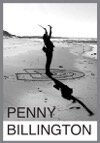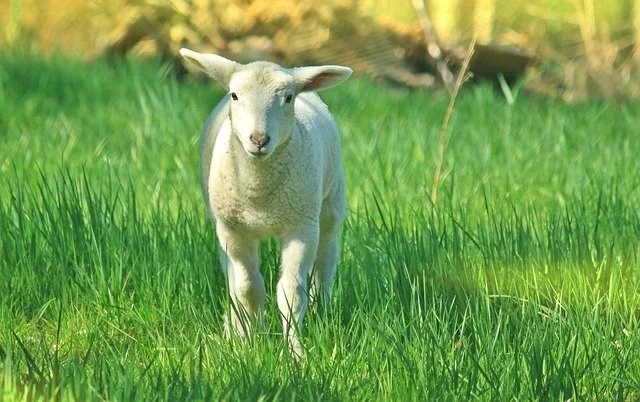Imbolc - time for a reincarnation???
Now obviously, we have one incarnation in every birth-death cycle. But some people change so profoundly during that one life that they completely remake themselves. Sometimes it’s as a result of tragedy or other life-fracture which renders earlier habits and behaviours meaningless. More happily we see it in the lives of creative artists, and perhaps we can learn – just a little – from them. For whilst most of us see much value in our present life, we have an uneasy feeling that, with tweaking, we could make things better, more harmonious, gracious and magical. The idea of ‘reincarnating’, reinventing ourselves, seems especially potent at Imbolc, the time of potential and the promise of a new spring ahead.
Let’s look at some people who have led the way.
I’ve just listened to a programme assessing David Bowie’s as a ‘great life.’ The three contributors were a distinguished fan, an expert witness and a supposedly impartial host whose own prejudices showed through all too clearly. I’m reeling from his constant iteration of Bowie as substandard, insecure in his talent, relying on gimmicks - a phenomenon who would soon be forgotten. And I cheered when he was challenged with, ‘That’s a ridiculous question,’ (this is unbelievably in your face from the BBC, bastion of politeness) and, ‘That sounds like a remark my grandmother would make.’ So may all bigots be trounced!
To reinstate Bowie, let me say that the interviewer ignored his two main gifts to the world. Both gifts are huge. So here is our first tricksy reinventor…
Firstly, he promoted an attitude that governments/individual politicians in their achingly slow, heavy-handed, law-bound way are helping us inch towards. He asserted the right of every young person to feel secure in their own shape, body, sexual orientation and expression of how they want to relate to life. His hairstyle and stage costumes were outrageous; he was the first celebrity to publicly wear dresses designed for men and a figurehead for an ambivalent sexuality.
Secondly he allowed his creative spirit to dictate his career. His outlook and outpourings were original – the fans didn’t know what to expect next. Now the Druid ethos reveres creativity as essential for fulfilling our potential, so that makes him an example to us all. He ditched his Ziggy Stardust persona at the height of his fame: how courageous. And how many of us are so wedded to ancient successes that they’ve become vital to our sense of self in perpetuity? How many attics contain thirty-year-old dissertations, outworn clothes from our twenties, cups and rosettes from childhood triumphs? There’s nothing wrong with nostalgia, but our present incarnation, this minute, may be being stifled by the weight of this baggage. Why not be courageous ourselves? Why not set aside the usual stuff that we’re good at, and the idea that we should be good at things, and do something new – and probably badly? What lessons would we learn? What fun might we have?
Might the sun shine a little more brightly on us as we went forward freely, playfully, independently?
If pop stars don’t float your boat as role models, there are many other artists sharing this maverick quality of placing their creative expression above everything else. Wow! What confidence in your vision that takes! Let’s take a poet, an artist and a musician…
Example: W.B. Yeats made his name with poems drawing on characters from Irish mythology and spawned many imitators. Famously he renounced that style in ‘A Coat’ and forged a brilliant career without it.
A COAT
I made my song a coat
Covered with embroideries
Out of old mythologies
From heel to throat;
But the fools caught it,
Wore it in the world's eyes
As though they'd wrought it.
Song, let them take it,
For there's more enterprise
In walking naked.
Example: Gauguin’s driving need to paint took him far from his earlier life as a tarpaulin salesman. His creativity spilled forth – as a painter, sculptor, printmaker, ceramist, and writer. Like many great innovators, he received little public appreciation until after his death, but he was a founder of an artistic genre who directly influenced Picasso and his art and life continue to capture the imagination of artists, writers and film makers.
Example: Violinist Nigel Kennedy. He was a prodigy, appearing with the greats and selling millions of records whilst young. At the height of his fame he announced the end of his career in classical music. What immense confidence to not remain on the gravy train. Imagine the pressure from his management and the whole entourage of fame bound up in his success. And was there a backlash! A director of Radio 3 labelled him a Liberace with ludicrous clothes and a "self-invented accent" – proving that the establishment doesn’t forgive when one of their own decamps. But he used his freedom to express his talents through pop, improvisation, Klezmer and jazz in a career that vindicates his decision to favour integrity over ‘toeing the line.’
Lastly, here’s something for us to ponder quietly. Many great spiritual leaders came suddenly from obscurity as fully-formed influencers. A recurring thread in their stories is of epiphanies, of visitations from other beings; experiences occurring when they removed from the everyday world, into a space of solitude, meditation and contemplation.
This is all very high-flying. Maybe none of us will reinvent and emerge as great artists – though nothing is impossible. But this is the time – our time - of the promise of new growth and potential. We can embrace the opportunity to look around and begin to free ourselves of all that is outworn in our lives. All those tiny incremental attitudes seem nothing in themselves but, packed into a rucksack of daily expectations, they can weigh us down, leaving no energy from fresh impulses, no space for new ways of thinking.
We can list these things, no matter how small, and examine each. ‘It’s my job or duty to...’ what??? Are things, or attitudes, of yesteryear, still relevant? Who would be seriously inconvenienced if we gave ourselves a break; allowed ourselves to do less, to think less judgmentally? What if we piggy-backed onto the courage and confidence of those creative artists; to become again new and open to respond freely to the tides of our lives, playfully rearranging our relationship to life?
Once we’ve embraced this as an idea, we can ring-fence the time – physical and mental - that we will free up. We can enjoy just being in that wonderful, clear, anticipatory space. We can relax and trust that, by not allowing the ‘same old’ to creep back in, things will arise that are far more fresh and original than perhaps we could ever imagine; and I find that very exciting.






